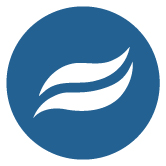
 
|

|
| Major: 3109
Catalog Year: 2023-2024
Effective Term: 2017 Fall
Last Admit Term: 2020 Summer
Award: AAS Total Credits: 60-65 CIP Code: 13.0401 |
Primary College: Rio Salado College
Initiating College: Rio Salado College
Program Availability: Not Found
Program Availability: Shared
Field of Interest: Education
Instructional Council: Family and Consumer Sciences (34) GPA: 2.00 |
|
SOC Code: 11-9031, 11-9032, 11-9033, 11-9039?
| |
|
Program Prerequisites: None
|
|||||||||||
| Required Courses | |||||||||||
|---|---|---|---|---|---|---|---|---|---|---|---|
CFS206 Child and Family Organizations: Management and Administration 3 | Credits: 35 | ||||||||||
| Restricted Electives | |||
|---|---|---|---|
Students must select courses from any combination of the following prefixes for a total of 3 credits. | Credits: 3 | ||
| General Electives | |||
|---|---|---|---|
|
| Credits: | ||
| General Education Requirements | |||
|---|---|---|---|
| General Education Requirement | Credits: 22-27 | ||
| General Education Core | Credits: 12-17 | ||
| First-Year Composition | Credits: 6 | ||
| + ENG101 First-Year Composition (3) OR
+ ENG107 First-Year Composition for ESL (3) AND + ENG102 First-Year Composition (3) OR + ENG108 First-Year Composition for ESL (3) | |||
| Oral Communication | Credits: 3 | ||
| COM100 Introduction to Human Communication (3) OR
COM110 Interpersonal Communication (3) OR + COM225 Public Speaking (3) OR COM230 Small Group Communication (3) | |||
| Critical Reading | Credits: 0-3 | ||
| + CRE101 College Critical Reading and Critical Thinking (3) OR
Equivalent as indicated by assessment. | |||
| Mathematics | Credits: 3-5 | ||
| Any approved general education course from the Mathematics area. | |||
| General Education Distribution | Credits: 10 | ||
| Humanities, Arts and Design | Credits: 3 | ||
| EDU/ENH291 Children`s Literature 3 | |||
| Social-Behavioral Sciences | Credits: 3 | ||
| CFS205 Human Development 3 | |||
| Natural Sciences | Credits: 4 | ||
| Any approved general education course from the Natural Sciences area. | |||
| Program Competencies | |||
|---|---|---|---|
| 1. Summarize the management and administration of community-based child and family organizations within the context of organizational behaviors, including the functions of administration, structure, and characteristics. (CFS206)
2. Analyze organization and community leadership in community-based child and family services organizations. (CFS207) 3. Differentiate between various leadership styles. (CFS207) 4. Summarize fiscal accountability and management in community-based child and family services organizations. (CFS208) 5. Analyze various types of resource development in community-based child and family services organizations such as grants and private funding. (CFS208) 6. Analyze philosophies of early care and education and articulate arguments and reasons for various types of early childhood programs. (EED200) 7. Describe the history of early childhood education. (EED200) 8. Explain professionalism, ethics, and standards related to the field of early childhood. (EED200) 9. Summarize developmental characteristics of young children and how the characteristics influence behavior. (EED200, EED212) 10. Describe how various environments impacts a child`s life. (EED212) 11. Summarize various impacts on discipline perspectives, including family beliefs, cultural beliefs, and the teacher`s personal beliefs. (EED212) 12. Explain infection control measures and sanitation techniques for a group setting. (EED215) 13. Summarize various safety procedures related to outdoor activities, playground equipment, transportation policies, and poison control. (EED215) 14. Summarize documentation requirements for documenting health histories, medications, emergencies, daily events, growth, and development in an early childhood setting. (EED215) 15. Explain the importance of a young child`s nutritional well-being, including basic nutritional needs and physical fitness. (EED215) 16. Analyze how family, community, and cultural influences impact a child`s development. (EED220) 17. Summarize the attachment process from infancy through preschool age that occurs within families and potential personal and societal threats to those attachments. (EED220) 18. Determine how demographics influence early childhood education programs and services, and whether a program serves the child and his/her family within in their community and culture effectively. (EED220) 19. Describe an exceptional learner (birth to 5 years old) and the processes used to identify, assess, and refer an exceptional learner. (EED222) 20. Describe various areas of exceptionality. (EED222) 21. Explain the Individual Family Services Plan (IFSP) and Individual Education Plan (IEP) and their importance. (EED222) 22. Apply early childhood education classroom instruction to work experiences during 80 hours per credit per semester. (EED260, EED261) 23. Identify and describe the principles of how young children learn. (EED278) 24. Compare and contrast current approaches to curriculum in early childhood settings and use Arizona Early Childhood Standards to explain the components of early learning and special needs curriculum. (EED278) 25. Differentiate between various assessment procedures for early learning. (EED278) 26. Explain factors that may influence early learning curriculum such as individual differences, family values, and community expectations. (EED278) 27. Examine the ethical and legal ramifications of standards, observation, identification, inclusion, and assessment in early childhood. (EED280) 28. Describe the various purposes of observation and assessment and explain the roles and responsibilities of an educational team. (EED280) 29. Use various methods of observation and assessment. (EED280) 30. Demonstrate effective communication techniques with young children, parents, and various educational team members. (EED212, EED280) 31. Demonstrate the ability to use computer software programs and write professional documents demonstrating a purpose, logical organization and inclusion of pertinent information for appropriate audiences. (FCS250) 32. Apply family and consumer science classroom instruction to work experiences during 80 hours per credit per semester. (FCS260) | |||
|
+ indicates course has prerequisites and/or corequisites.
++ indicates that any suffixed course may be selected. MCCCD Governing Board Approval Date: 3-25-08 | |||